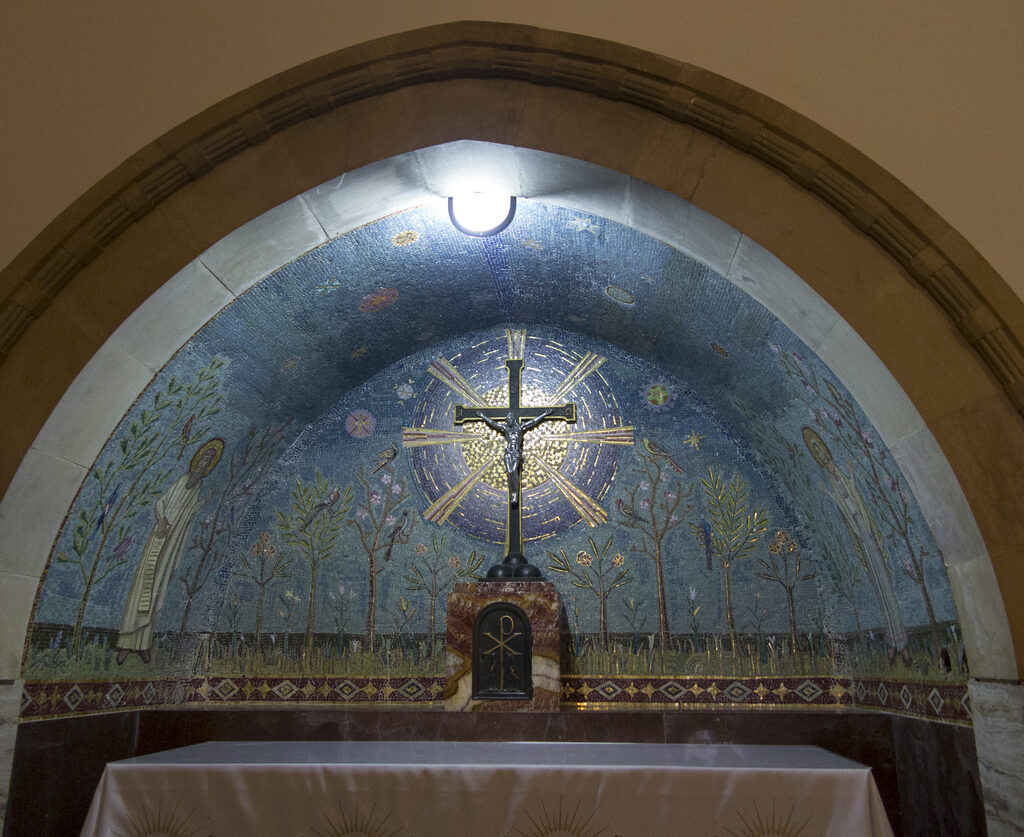Sunday 9 August – Ninth Sunday after Pentecost
Isaiah 1: 1, 10-20 & Luke 12: 32-40
The pairing of the Isaiah reading with the Gospel this week provides a good background of the audience Jesus was talking to on his journey to Jerusalem.
In Isaiah, we have God who has “had enough” of the offerings, of the incense, and quite frankly – of Israel! Why? Instead of focussing on their new moons and new festivities, God wants them to get back to the law: “cease to do evil, learn to do good, seek justice, rescue the oppressed, defend the orphan, plead for the widow”. It’s beautifully poetic.
Another prophet, Ezekiel, describes graphically of God “going away” during the exile. It is with this context then, that those listening to Jesus would have heard the story of the “Master” who had gone away. Stories of the “master going away and returning” were often reflections about Israel and God, and the expected return of God.
The kingdom is coming when God will return and put all things right. Except as with most of Jesus’ storytelling – there is more. This story has a different kind of ‘coming’ – the coming of the Son of Man. Be watchful as the thief (Jesus) could come at any time.
Sunday 14 August – Tenth Sunday after Pentecost
Luke 12: 49-56 & Hebrews 11: 29 – 12: 2
In a world where there is just so much division, how do we approach such a difficult teaching from Jesus that we find in today’s gospel? This is not the Jesus we are used to seeing, or even admittedly, probably not the Jesus we want.
Jesus’ relationship with his Father is what ultimately determines his identity and being. He freely chose that relationship above all others. This does not mean he rejects all others – far from it! Rather, all other relationships are framed through this relationship with the Father.
Perhaps Jesus is setting a choice to his listeners in this reading? Who or what is the determining relationship that gives you your identity and being? What relationship shapes you and your identity? Your partner, your parents, your children? Your work or even your country? These are the things Jesus is challenging.
We are reminded in the Hebrews reading of the great story of faith and “cloud of witnesses” that has come before us. What is your story? Reflect on this and the things that are important to you.
Sunday 21 August – Eleventh Sunday after Pentecost
Luke 13: 10-17
Can you possibly imagine being bent over and unable to stand up straight for 18 years? While nothing in comparison, in recent years I had some back problems which thankfully have been resolved with surgery. During that time however, the pain I felt was as much from ‘holding in’ and just coping to try and get through the tasks of the day, as it was from the actual pain itself.
Something placed this woman in the Synagogue on the sabbath – and Jesus heals her without hesitation. Her immediate reaction? To praise God for her healing – to praise God on the sabbath, on God’s day. This celebration of praise is interrupted by the Synagogue leader who states that healing on the sabbath is work and work is an offence on the sabbath. Jesus does not hesitate to call our his hypocrisy and to direct their attention to how necessary this woman’s healing was. The people listening are convinced, and his opponents are silenced.
For Jesus, the limited sense of God projected by the complaint is far outweighed by the suffering of humanity and glorifying God on this sabbath day. The sabbath is reclaimed as an occasion of healing and fullness of life.
Sunday 28 August – Twelfth Sunday after Pentecost
Luke 14: 1, 7 – 14
Following the lesson on healing on the Sabbath last Sunday, Jesus (in the section omitted from the lectionary) has another occasion where he schools the Pharisees and leaders present when a man with dropsy presents for healing at a banquet. Jesus then proceeds to humble them further with a lesson on radical hospitality.
This may at first sight appear as some useful practical advice – choose the lowest place because if there is a rearrangement of seating it is much better to be moved up the table than down. But this is a parable, so this signals there is more than advice on offer here.
Brendan Byrne supposes that the ‘horror’ involved in the parable of being made to move to a lower place at such a public banquet refers to the ‘great reversal’ that is to come and has been echoed throughout Luke’s gospel. Starting with the Magnificat in chapter 1, to the Beatitudes and Woes in chapter 6, there is a great over-turning to come. Those who choose now to sit with the poor and lowly are destined for a ‘higher place’ when the Kingdom comes.
Jesus follows this parable up with a direct challenge to the host of the banquet – when issuing invitations forget your relatives and your friends, for you expect an invite in return. Invite instead those who have nothing to offer back. Well, nothing expect their company and who they are. Which, when it comes down to it, is what truly matters – bringing who we truly are into the full love and hospitality of God.
James Ellis












